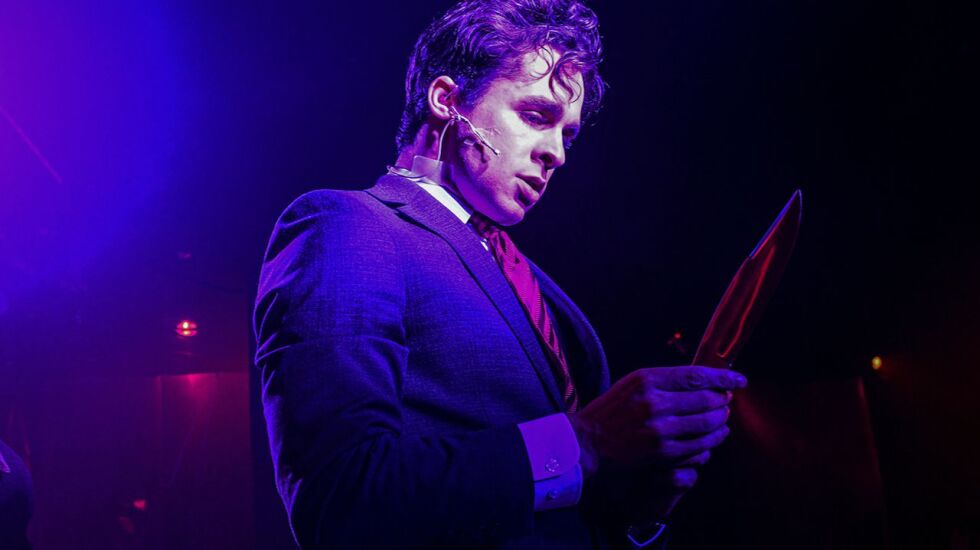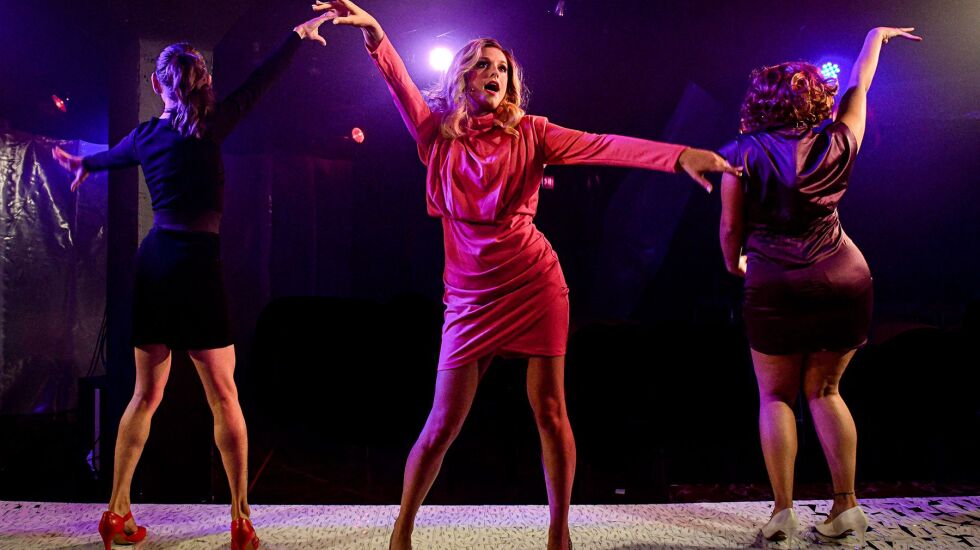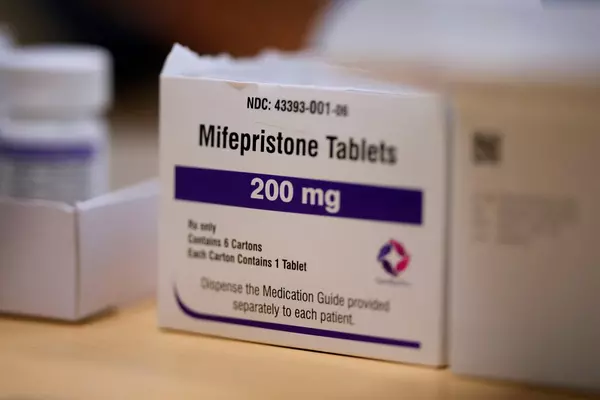
Like the 1991 Bret Easton Ellis novel that spawned it, “American Psycho: The Musical” is larded from start to finish with loathsome characters, jarring, violent instances of misogyny and homophobia and an over-the-top obsession with designer labels.
Like the book Ellis claimed was pure satire, the 1980s-set tuner that Kokandy Productions opened last week is centered on the world of 27-year-old Wall Street investment banker Patrick Bateman. In addition to being obsessed with bespoke suits, fine dining and his hero Donald Trump, Patrick is also a serial killer, mostly of women.
Directed for Kokandy by Derek Van Barham, “American Psycho: The Musical” follows Patrick as he slices up innocents in between meals at exclusive restaurants, workouts with his Ivy League-educated finance bros at upscale gyms and coke-fueled nights at the club. Patrick also goes to the office, but his work seems to consist primarily of comparing business cards (a metaphor for an especially testosterone-driven anatomical appendage) with his co-workers and remonstrating his secretary for wearing a pants suit to the office. (Only heels and dresses, Patrick dictates with a wolfish smile).
According to a lecture Ellis gave in Chicago back in the early aughts before the release of the 2000 movie adaptation of “American Psycho,” the story is a send-up of ‘80s-style materialism. But in the musical as in the book, Bateman’s litany of skin-care products and Gaultier accessories read more like shopping lists for the 1 percent than any kind of social commentary.
Satire or not, “American Psycho: The Musical” (book by Roberto Aguirre-Sacasa, music and lyrics by Duncan Sheik) suffers from the same intractable problem that defined the novel: Bateman and his crew are vile people from start to finish. There’s no growth, no evolution and no redemption. There is only a series of increasingly meaningless violence.
The other major problem here is ludicrous lyrics. The score includes several ’80s hits from the likes of Phil Collins and Huey Lewis and the News, as well as original music from Sheik. The former are fine. The latter is typified by the inane “You Are What You Wear,” sample lyric: “Mahi mahi/Works so well/With Isaac Mizrahi.” Anther memorably awful song, “Hardbody,” includes gems like “I like a hardbody/I bet that after this class/She teaches dirty karate.”
There’s not a lot director Van Barham can do to elevate such tripe.
All that said, Kokandy has a Patrick Bateman who radiates star quality from his slickly gelled hair to his impossible shiny shoes. As Bateman, Kyle Patrick is a creature of remarkable charisma and a dancer of flowing elegance and pile-driving athletic acrobatics. When he’s on stage — whether in a wild-eyed killing frenzy or glowering over the font on his business card — he seems to be lit from within. The impish gleam in his eyes matches the sparkling knives he wields with a juggler’s grace in the unimaginatively titled number “Killing Spree.”
The other star here is Breon Arzell’s alternately spiky and fluid choreography. Lewis’ “Hip to Be Square” is a cheeky delight to watch, even if you know something bloody terrible is about to unfold. “Hardbody,” inarguably dumb lyrics notwithstanding, is a hoot in its replication of frenetic disco-aerobics.
Far less engaging are the roles allotted to the women stuck in this story. As Bateman’s girlfriend Evelyn, Caleigh Pan-Kita is sorely underused as a character who is essentially a mannequin, all surface and no interior. Bateman’s secretary Jean (Sonia Goldberg), meanwhile, does little but follow her boss with yearning, puppy-dog eyes, hoping to be noticed.

Throughout, there are problems with Michael J. Patrick’s sound design, which has the orchestrations blaring at a volume almost painfully loud; if you’re seated next to a speaker, it’s like being in the front row of an arena concert. You’ll want a pair of earplugs. Music director Heidi Jooste’s work suffers as a result; some of the solo numbers sometimes feel more like bad karaoke than musical theater.
Rachel Sypniewski’s costumes have the men in (mostly) well-fitted suits that adequately mimic the uniform donned by the sort of ’80s Yuppie who aspired to Wall Street millions and cited Trump as a role model. G. Max Maxin IV’s spare set design makes the most of the downstairs space at the Chopin, although a couple of pillars in the basement venue sometimes make for challenging sightlines.
In the end, Kokandy’s production has one massive plus in Kyle Patrick’s sleek, sparkling performance. It makes “American Psycho: The Musical” a passable exercise in hate-watching, but little else.







